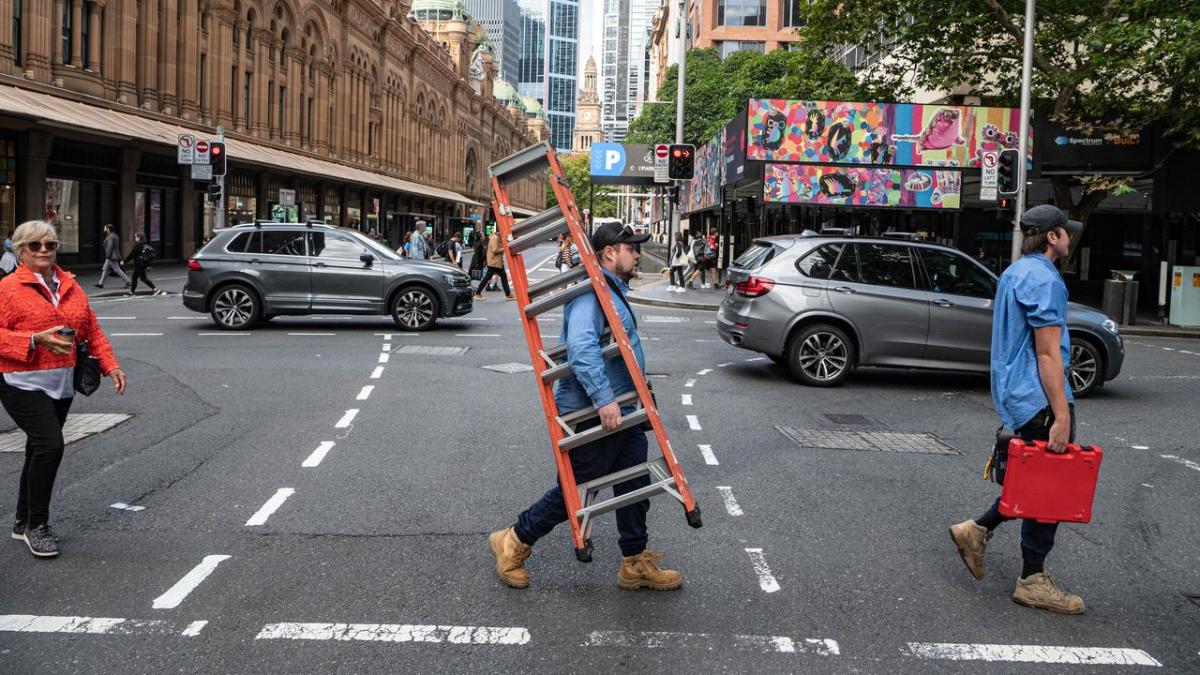Appetite among businesses for hiring in a barely growing economy will be on show as official labour market data is rolled out for the month of May.
Thursday’s labour force data from the Australian Bureau of Statistics is expected to underline resilience despite an economy losing steam in the face of higher interest rates and persistent price pressures.
Even with the March quarter national accounts showing an economy expanding just 0.1 per cent, the unemployment rate may actually drop back below four per cent in May, a heartening sign for those looking for work.
ANZ economists, including head of Australian economics Adam Boyton, said there were more people than usual waiting to start a new gig in April and as those people got to work in May, the jobless rate may fall from 4.1 per cent to 3.9 per cent.
They tipped a 15,000 increase in employment, which would follow a 38,500 lift in April and a 5900 drop in the month prior.
Commonwealth bank economists expect a larger 30,000 boost in positions but believe the unemployment rate would hold at 4.1 per cent to reflect a rapidly growing supply of workers.
“Leading indicators point to a softening in labour demand, pushing the jobless rate higher later this year,” CommSec senior economist Ryan Felsman said.
As well as jobs data on Thursday, fresh ABS population statistics for 2023 year-end will be of interest given the political focus on migration levels post-pandemic.
The pulse of the business sector will also be taken, with National Australia Bank set to release its monthly survey on Tuesday.
The business survey will be followed by overseas arrivals and departures data from the ABS on Wednesday, and Commonwealth Bank’s household spending insights data on Thursday.
Global stocks pulled back from an all-time high after surprisingly strong US monthly jobs data dimmed hopes the Federal Reserve would soon follow euro zone and Canadian interest rate cuts, causing Treasury yields to shoot higher.
Wall Street finished in the red. The S&P 500 fell 0.1 per cent after hitting an all-time high of 5,375.08 points. The Dow Jones Industrial Average edged down 0.2 per cent, and the Nasdaq Composite also lost 0.2 per cent.
Australian futures fell 46 points, or 0.58 per cent, to 7838.
The Australian share market climbed for a fifth time out of the past six sessions to post its best weekly gains for the year.
The S&P/ASX200 on Friday accelerated its gains in the afternoon to finish up 38.2 points, or 0.49 per cent, to 7,860.0, its highest close since May 20.
The broader All Ordinaries on Friday finished up 38.5 points, or 0.48 per cent, at 8,112.8.

